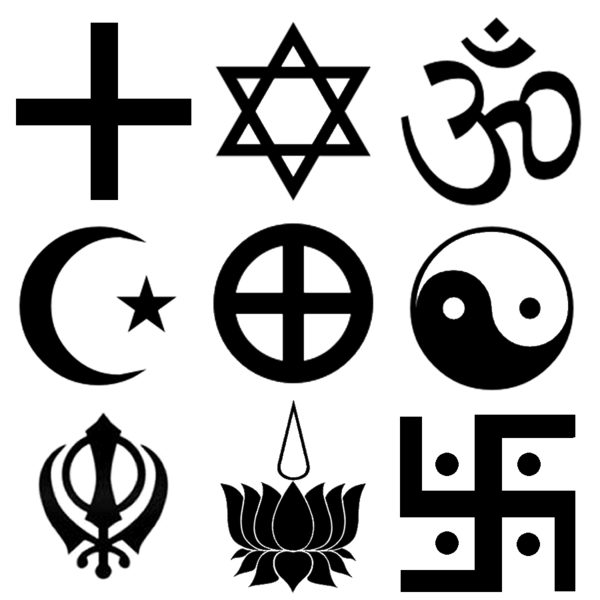The Ivory Coast, a nation nestled in West Africa, is a tapestry of diverse cultures and religions, deeply woven into the fabric of its social life. It is a land where the echoes of ancestral traditions harmoniously coexist with the tenets of Islam and Christianity. This remarkable confluence necessitates a thoughtful examination through a Christian lens, highlighting the intricate interplay of faith, tradition, and everyday life in this vibrant nation.
In the historical context, the religious landscape of the Ivory Coast has been shaped by a series of migrations and encounters with outside powers. Islam began to take root in the region around the 7th century, primarily through trade and influenced by interactions with North African merchants. However, it was not until the 19th century that Islam saw substantial growth, largely due to the establishment of the French colonial administration which inadvertently cultivated both Islamic and Christian faiths. With the arrival of European missionaries, particularly during the late 1800s, Christianity spread, offering an alternative worldview for many Ivorians. The present-day populace reflects this multifaceted history, with nearly 40% identifying as Christians and roughly 35% as Muslims, while a significant portion adheres to indigenous African traditional religions.
Christianity in the Ivory Coast expresses itself in numerous denominations and practices. The Catholic Church holds a prominent place within the religious tapestry, complemented by a thriving spectrum of Protestant denominations, including Evangelicals and Pentecostals. These Christian communities have diligently sought to engage with the local populace, often employing culturally resonant frameworks that make their doctrines relatable and relevant. For instance, church services may resonate with traditional rhythms and local languages, fostering an atmosphere that is both familiar and divine.
However, to comprehend the Christian presence in the Ivory Coast, one must appreciate the omnipresence of traditional beliefs that coexist with more formalized religious structures. Ancestor worship, spirit possession, and ritual sacrifices are integral to many communities, often serving as a means of negotiating life’s uncertainties. This traditional perspective is not merely archaic; it shapes daily interactions and decisions, often influencing how Christians live out their faith. Thus, one observes a fascinating syncretism where traditional practices intermingle with Christian beliefs, creating a unique religious identity that honors the past while embracing the future.
Furthermore, the intersection of religion and identity is pivotal in the Ivorian context. In a nation marked by ethnic diversity, religious affiliation often becomes a salient marker of identity. The predominance of two major faiths, Islam and Christianity, can foster a sense of communal identity, bridging ethnic divides and promoting unity among believers. Churches and mosques are often seen as places of refuge and solidarity, particularly during periods of political unrest or social upheaval. Through collective worship and community service, both Muslims and Christians can work side by side towards a common goal: peace and harmony in a nation that has witnessed the ravages of civil conflict.
The political landscape is inextricably tied to matters of faith. The Ivory Coast has experienced significant turmoil in recent decades, particularly during the civil wars in 2002 and 2010-2011. Faith leaders frequently emerged as mediators during these crises, promoting dialogue and reconciliation. It is within these challenging contexts that the church’s role extends beyond spiritual nurturing to assuming a prophetic stance in society—advocating for justice, peace, and human dignity. This active engagement reveals a compelling aspect of Christianity: its potential to influence societal structures and foster transformation beyond the pews.
Today, the challenge remains for the church to navigate an increasingly pluralistic society while remaining rooted in biblical principles. The entanglement of faith and traditional customs raises essential questions concerning the authenticity of worship and the fidelity to Christian teachings. Can one remain a devoted Christian while simultaneously honoring ancestral traditions? This dilemma urges Christian communities to delve deeper into the theological implications of syncretism and to articulate a robust faith that resonates within the Ivorian cultural framework without compromising core doctrines.
In this dynamic landscape, the fusion of Christianity and traditional beliefs presents an intriguing paradigm for the global Christian community. It challenges believers to transcend cultural boundaries and consider how faith is expressed in varying contexts. The Ivorian experience offers a compelling testament to the adaptability of Christianity and its ability to root itself in diverse soil while retaining its essence.
Lastly, the spiritual landscape of the Ivory Coast serves as a reminder of the importance of theological dialogue and mutual respect among different faiths. As Christians engage with their Muslim neighbors and those who adhere to traditional beliefs, they can cultivate a spirit of understanding and cooperation, grounded in the pursuit of common good. This collective aspiration provides fertile ground for exploring shared moral values and fostering interfaith partnerships that can contribute greatly to social stability and mutual respect.
In conclusion, the blend of Christianity, Islam, and traditional beliefs in the Ivory Coast is not simply a narrative of coexistence; it is a vibrant expression of the human quest for meaning and belonging. As the nation continues to navigate the complexities of its religious identity, the promise of a shared future rooted in understanding and respect emerges. This exploration beckons the Christian scholar and layperson alike to remain curious about the rich interplay of faith, culture, and society—a journey that is as enlightening as it is transformative.



